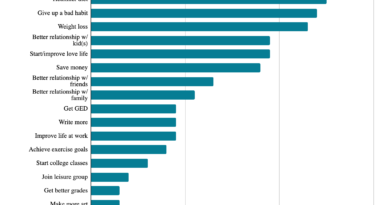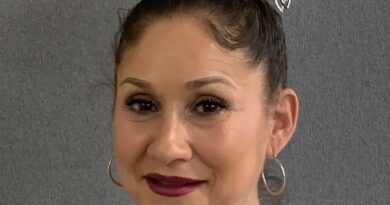A visit to the CCWF library
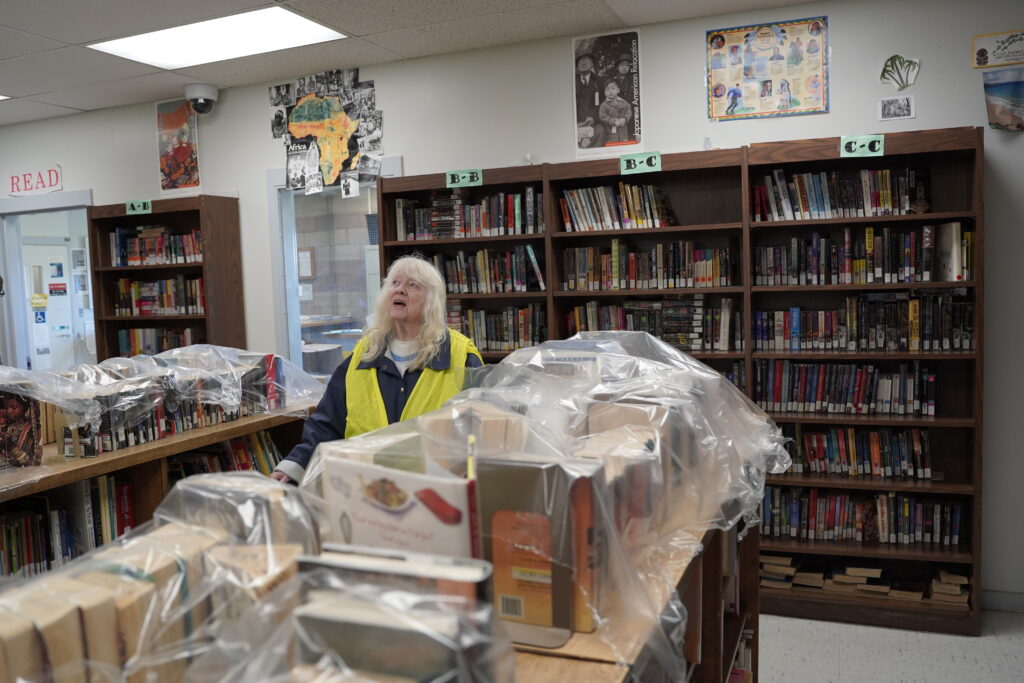
Henry David Thoreau wrote in “Walden” that “books are the treasured wealth of the world and the fit inheritance of generations and nations.”
A piece of that wealth can be found here, at the Central California Women’s Facility (CCWF) Library. This is a place of knowledge open to incarcerated persons in CCWF. And, as a matter of fact, according to Senior Librarian Robert Oldfield, more than a thousand incarcerated persons visit the library every quarter, including those who come in every week for legal research.
Currently the library contains 15,487 books, 5,977 fiction and 9.510 non-fiction— thousands of books catalogued on a statewide system in every category: law, reference, encyclopedias, fiction, non-fiction, religious texts, foreign languages, magazines, prison newspapers, legal forms and most of the California Department of Corrections and Rehabilitation’s Operational documentation.
Children’s books we can read to the kids during phone calls or video visits are available, as well as large print versions of many bestsellers. Copies of legal documents and filings are provided by staff that serves A-yard and general population. All we need is a GA-22 Request for Interview to schedule a visit or ask for services.
Oldfield’s staff includes librarian Lisa Andrade, and library technical assistants A. Mirelez and K. Van Buren. G. Gonzales manages the A-Yard Library. Two incarcerated persons also work at the Library. Clerk Mariam Martinez and an ADA Assistant are available to help with any request for using library resources.
There is wheelchair and walker access. For anyone expanding reading skills or working on vocabulary, there are “Easy Readers” for all levels of reading expertise. Large print books are shelved in the Law section, so ask for assistance in finding what you need.
Our Law Library uses the LexisNexis Law Library system which is also on our GTL tablets. There are three computers available for research on case law, state and Federal statutes, and CDCR rules and procedures.
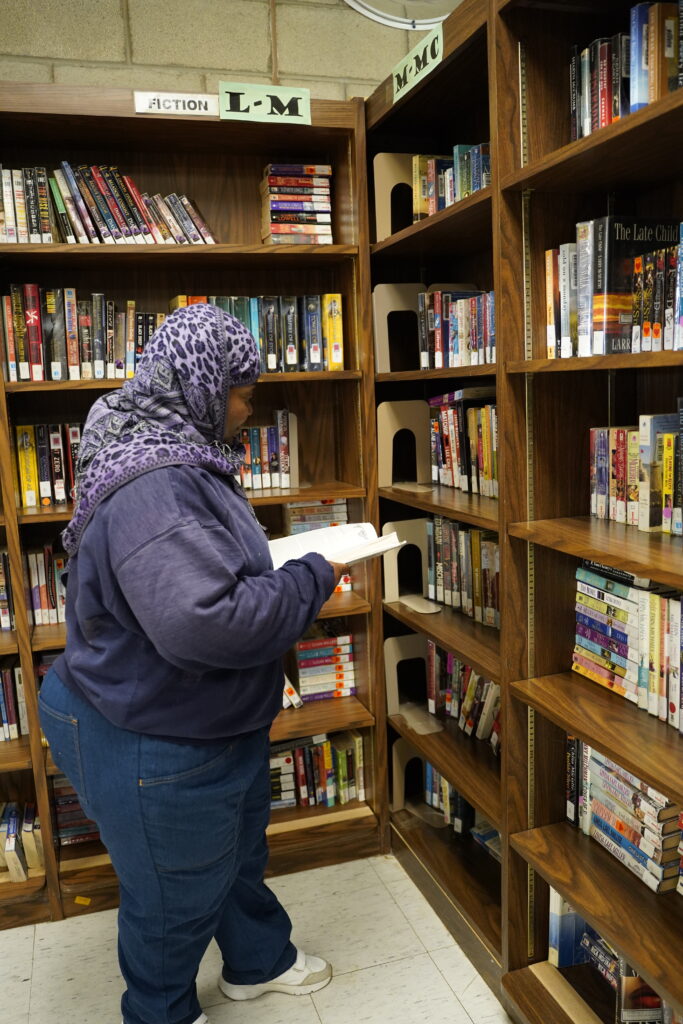
Department of Operational Manual Supplements or Local Operations Procedures are available on request. When you submit the request, be specific by using the number or title of the procedure you need.
If you need legal forms or copies of documents, remember to include the form number and the number of copies. This is especially important if you want legal documents or packages for filing in the courts.
Chantell Gosztyla, a routine visitor, has used numerous features of the Law Library.
“The staff is consistently helpful and supportive, even encouraging me to expand my research and supplying copies for filings in court,” Gosztyla said.
The Recreation Library contains a variety of fiction and non-fiction books. Popular best-selling fiction authors are located near the entrance.
If you’re looking for Nora Roberts, John Grisham or James Patterson, they are easy to find as you walk in. All the regular fiction is filed by author’s last name. Ask the staff if you need assistance finding an author; some of the classic literature and poetry books are in special sections.
All the non-fiction books are filed first by a numerical system, then alphabetically by author. Charts are posted at various locations to help you find your book.
Some popular subjects are biographies, arts and crafts, medical and health books, and reference books on language, i.e. thesaurus or dictionaries. There are three sets of encyclopedias, including one in Spanish, available for use in the library. Another popular topic is on starting a business, which can give you a head start before parole.
The library regularly acquires new books and the next book order is being prepared now. New editions of medical and reference books will be included.
The latest version of the “Physician’s Desk Reference” which describes all prescribed medications, and the “Diagnostic Statistical Manual” which lists names of diseases and conditions, will be in the new order. Suggestions for new books can be made at the library or by GA-22 Request form.
Donations are welcome and come in through several ways. Gently used books sent by friends and family can be taken back to Receiving & Release (R & R). Just inform staff in R & R that you are donating the book(s) to our Library. Books can also be donated through official channels by obtaining forms from the Community Resources Manager (CRM).
When you visit the library for the first time, you will complete a Trust Withdrawal form. Checking out books is quick and simple; your books are stamped with a due date of 30 days. There is a grace period before any reminder notices are sent. If a book is damaged while in your possession, you may be charged $5.00 for repair.
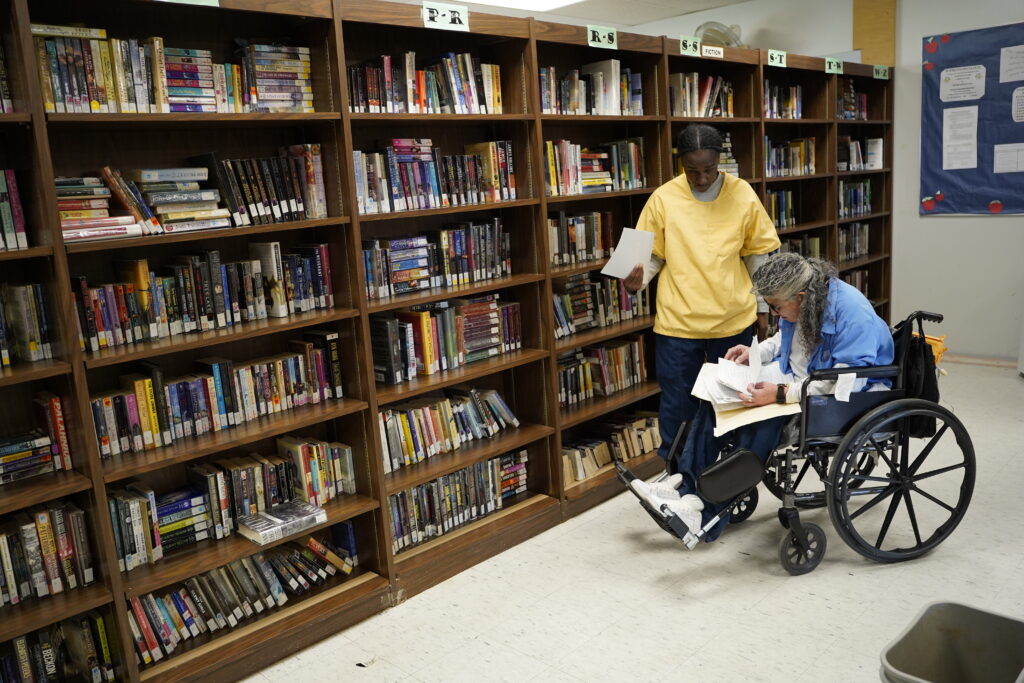
Donna Lee, a former library worker, has been using library services for many years. She encourages everyone to “check out all the great books and use the resources on the law side. The information can help us regain our freedom, improve our knowledge and provide hours of entertainment.”
It’s important to remember that although we can use our GTL tablets for recreation and education, library staff can help get us started on self-help topics and study subjects.
Oldfield has several plans for future services at the library, such as updating legal forms and starting book clubs. So, plan a visit to the CCWF Library and explore the resources in our “center of knowledge.” Literacy can play a major part in our rehabilitation, as Oldfield believes.
“The right book can keep [people] on the road to recovery,” he said.

